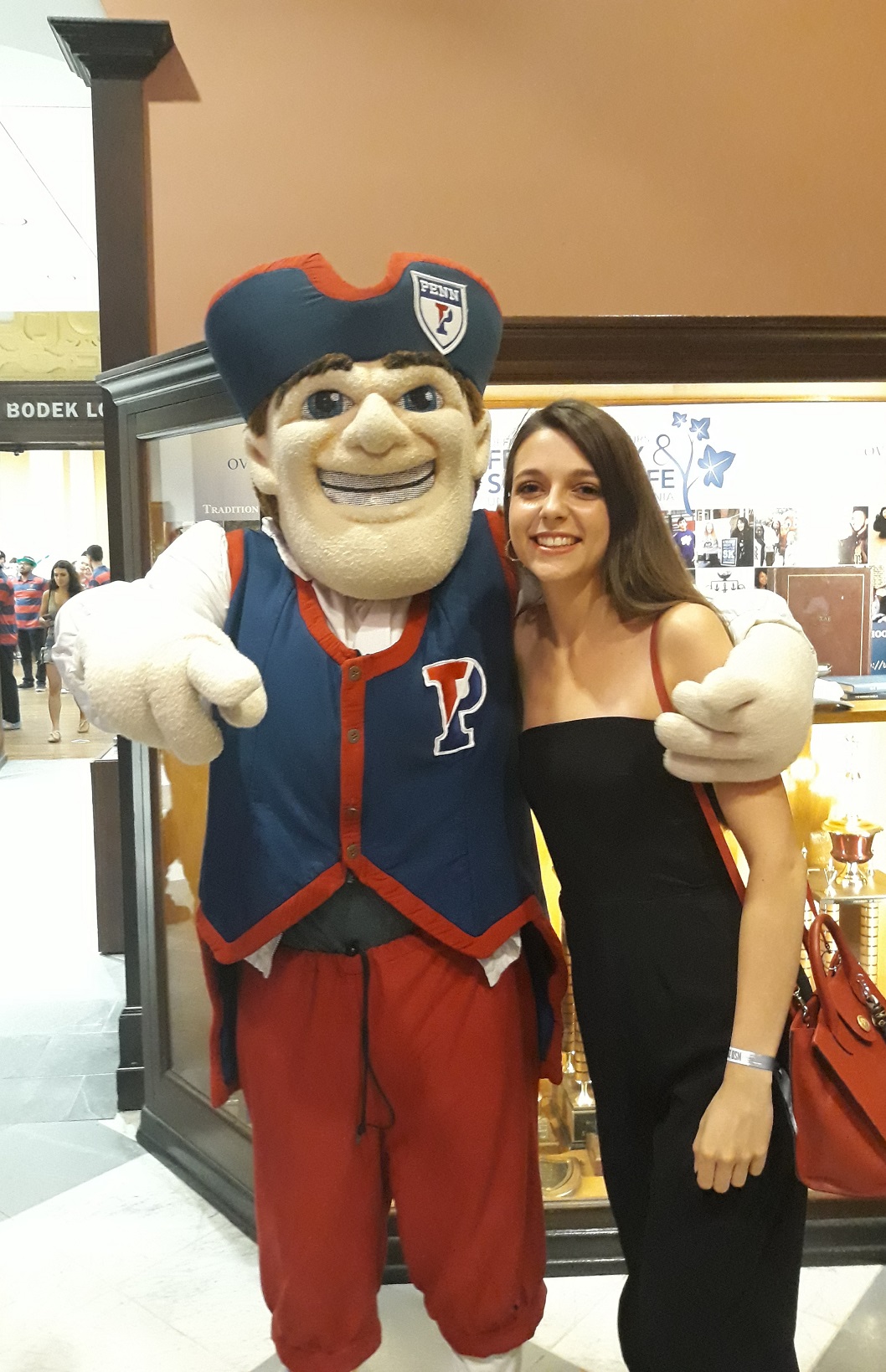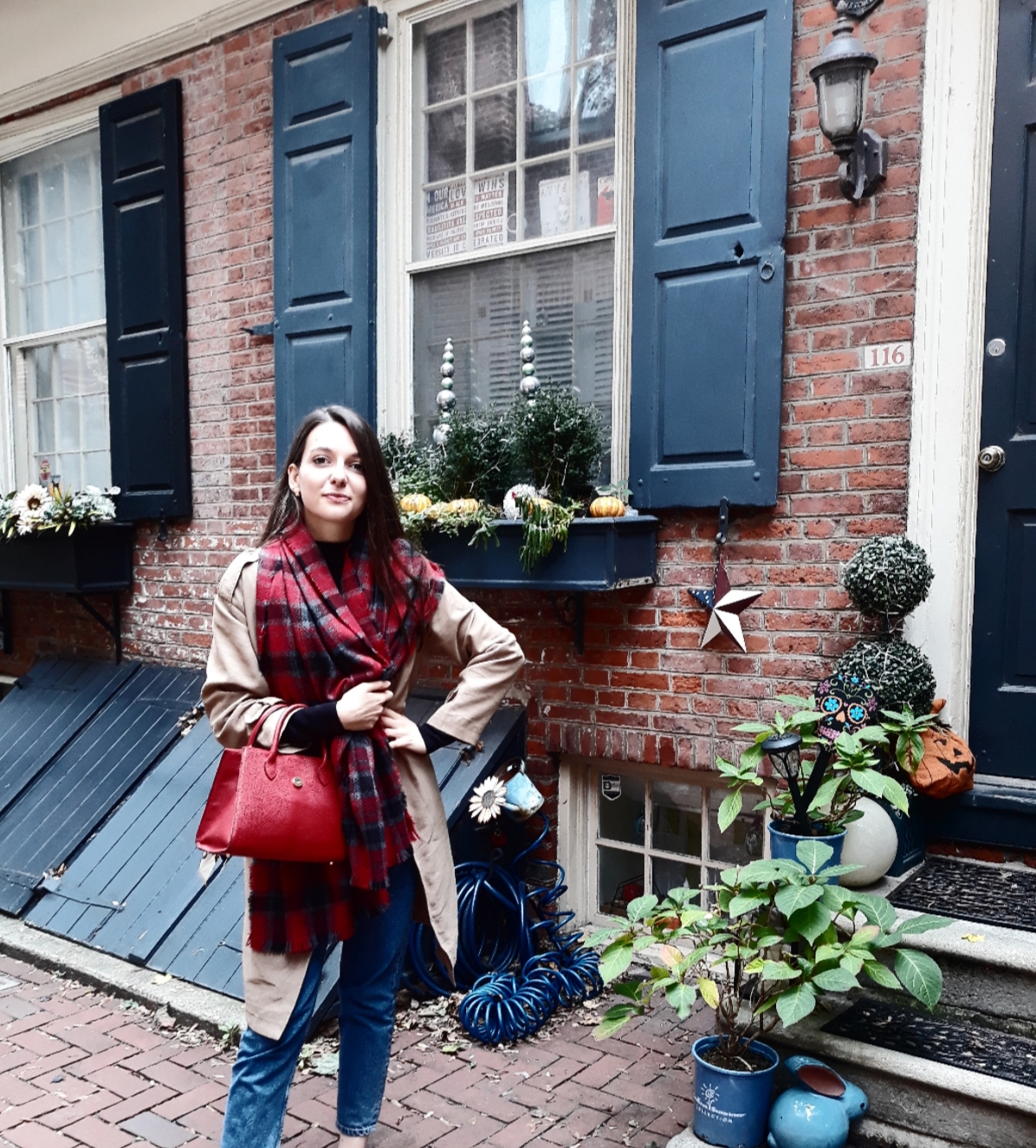Q&A with Clémence Blanc
By: Lisa Chang, Penn Abroad Graduate Assistant

Clémence Blanc is an exchange student coming to Penn from Sciences Po Lyon in Lyon, France. Clémence is studying at The College of Arts & Sciences for the 2019-2020 academic year. We sat down with Clémence to learn more about her and her exchange experience so far.
How did you prepare for your time at Penn?
Like most students who have studied abroad, I was told that going abroad would be “the best time of my life,” and that I should travel a lot, make lots of friends, you know, a lot of common advice. However, I tried to measure my expectations. Before I left France, I told myself that I would be in a totally different environment and that it was okay if I didn’t make a lot of friends or if things didn’t go as expected. This mindset removed a lot of pressure so that I can fully stay present in my time here.
I think what helped my transition to Penn was my knowledge of the US. Prior to coming, not only did I do lots of personal research on the United States, the history of Philadelphia, and US academic culture, but I also talked to exchange students from Penn who studied at my home university, Sciences Po Lyon. Talking to Penn students and forming relationships with them also opened me up to even more relationships once I arrived at Penn, since the Penn students I met at France would introduce me to others at Penn. In fact, one of my best friends here was introduced to me by a Penn student who studied abroad at Lyon! Lastly, as an independent person, I know it’s okay to be alone.
Despite preparing so well, were there still things that surprised you here?
Definitely. As strange as this sounds, I often feel like an ethnographer as I navigate campus life, making observations that are novel to me and analyzing social interactions that Americans may take for granted. I’ve been quite shocked by aspects of student life like Greek life, clubs, and dating culture. For example, I knew that fraternities and sororities existed, but I was surprised by the gender dynamics and the centrality of social connections. In terms of dating culture, I feel like lots of things are kept unsaid and people are expected to act a certain way where they don’t say what they feel.
Have you discussed these observations with your friends here?
Certainly. I have a few close friends at Penn and we talk about everything. Every time I meet someone, I am also very open to talking about anything, including serious and taboo topics. My experience is that students here have a hard time having deeper conversations and there’s a lot of small-talk. But by not being afraid and engaging in conversations that are important to people, I have been able to bond with people and form lasting connections.
I really believe that confidence is the key to making friends. That would be one of my biggest advice for current and incoming exchange students. Ask people to have lunch with you. Don’t be afraid to start a conversation with someone sitting next to you in class. Actively try to get to know people. At the same time, don’t put too much pressure on yourself to have the best experience ever.
What about advice for Penn students looking to study abroad at Sciences Po?
I would say the same thing. Sciences Po students won’t reject you and are willing to help. Even if you are embarrassed by your French abilities, it’s totally okay.

Shifting gears a little bit, can you tell me a bit about your classes at Penn?
I’ve enjoyed the classes so much. I’ve particularly like the classes in the English Department, like a non-fiction writing class last semester and a class this semester called “Writing on Photographs.” Thinking about it, I find it both funny and amazing how a simple family picture of mine can end up being used in a class at one of the best universities in the US! The professors have been incredibly helpful and whenever I need someone to proofread my writing, students are happy to help, which I’m very grateful for. This is a great environment to learn and improve because people are much more forgiving with mistakes.
As a political science major, I have also taken lots of classes on issues in the US, such as mass incarceration and deportation. I took a law class on women and children and I’ve learned how issues such as abortion, which we often assume to only affect poor or unmarried women, actually affect all of us. These classes are difficult, both academically and emotionally. However, these are also the types of classes I wouldn’t have been able to take in France, not only because they’re so specific to the US, but also because undergraduate courses in France tend to focus on general theories rather than specific areas of interest. These types of courses or study would probably only be available to graduate students in France. It’s amazing how you can start delving into learning these things earlier on in the US.
Wow, these are some really heavy topics! How do you process all of it?
I have to mention this family that I have gotten super close to in Philly and try to see them on a regular basis. The family has three children, and I’m particularly close to the mother, who works for Penn’s Infectious Diseases Center. I talk about some of the things I learn in class with her and she shares her personal experiences and expertise that have really augmented my learning and help me to see such issues on an even closer, more intimate level. For example, I have interviewed her on child abuse since she works with HIV patients, many of whom have experienced abuse.
On a lighter note, though, since the family is interested in French culture and the children attend a French school, I’ve enjoyed talking about France with them. They’ve invited me to go apple picking, as well as a Labor Day barbeque with their extended family! Moments like these truly make me feel like I’m part of their family. They even hung up a picture of me and their children on their wall, which makes me feel so happy and welcomed.